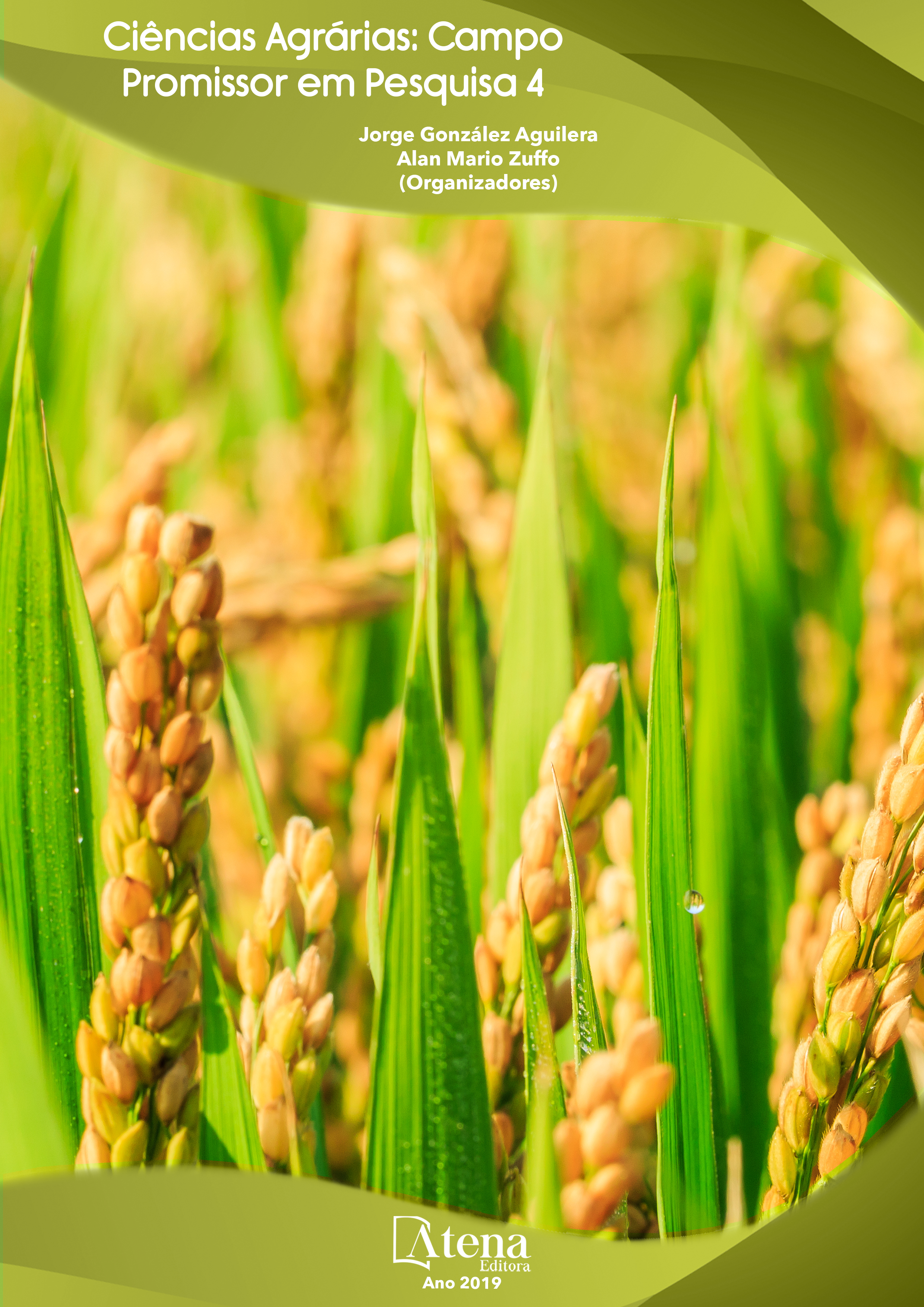
AVALIAÇÃO QUANTITATIVA DA BIOMASSA FRESCA PRODUZIDA PELAS LEGUMINOSAS COMO ADUBOS VERDES
O presente trabalho busca abordar
sobre a produção de biomassa verde oriundas
de leguminosas para análise quantitativa
de biomassa fresca em um experimento na
comunidade de Santa Terezinha localizada
no município de Castanhal-PA, com intuito
de diminuir a limitação e os efeitos erosivos
que o sistema tradicional da agricultura de
corte e queima gera, com vista a avaliar o
potencial de fornecimento de massa verde de
cada leguminosa utilizada no estudo, no qual,
quatro espécies foram avaliadas sendo estas:
crotalária juncea, mucuna cinza, feijão guandu, feijão caupi e tratamento controle,
no DBC com 5 tratamentos, em parcelas de 9m2, com 4 repetições, com início de
plantio no período chuvoso visto que é o período que o processo de disponibilização
dos nutrientes as culturas subsenquentes e com crescimento vegetativo apresentase
com excelente desempenho agronômico e ainda com a umidade de solo maior,
o processo de decomposição é mais acelerado, facilitando a fixação de nutrientes .
Obteve-se como resultado que as leguminosas mucuna cinca, feijão guandu, crotalária
juncea, tratamento controle mostraram os melhores quantitativos de biomassa verde e
feijão caupi apresentou a menor produção. A biomassa produzida pela mucuna cinza
apresentou melhor qualidade para incorporação, pelo nível de decomposição rápido,
além de melhor favorecer o desenvolvimento vegetativo da cultura subsequente.
Entretanto ainda são necessárias mais pesquisas sobre o incremento da cultura após
a incorporação da biomassa no solo, levando em consideração mais variáveis. Desse
modo foram utilizados como aportes teóricos autores como: (KATTO, 2002), (ARAÚJO,
2007), (RIBEIRO, 1999), (NASCIMENTO, 2005), (AMBROSANO, 1999).
AVALIAÇÃO QUANTITATIVA DA BIOMASSA FRESCA PRODUZIDA PELAS LEGUMINOSAS COMO ADUBOS VERDES
-
DOI: 10.22533/at.ed.1841920065
-
Palavras-chave: Leguminosas, Adubos Verde e Sustentabilidade
-
Keywords: Legumes, Green Manure and Sustainability
-
Abstract:
The present work seeks to address the production of green biomass from
legumes for quantitative analysis of fresh biomass in an experiment in the community
of Santa Terezinha located in the municipality of Castanhal-PA, in order to reduce
the limitation and the erosive effects that the traditional system of cutting and burning
agriculture generates, in order to evaluate the potential of supplying green mass of
each leguminous used in the study, in which four species were evaluated: Crotalaria
Juncea, gray velvet bean, pigeon pea, cowpea and control treatment, in the DBC with
5 treatments, in plots of 9m2, with 4 replications, with beginning of planting in the
rainy season, since it is the period that the process of nutrient availability the crops
Subsenhot and vegetative growth is presented with excellent agronomic performance
and even with higher soil moisture, the decomposition process is more accelerated,
facilitating the fixation of nutrients. It was obtained as a result that the leguminous
Mucuna Cinca, Guandu Bean, Crotalaria juncea, control treatment showed the best
quantitative of green biomass and cowpea presented the lowest production. The
biomass produced by the gray Mucuna presented better quality for incorporation, by
the level of rapid decomposition, besides better favoring the vegetative development
of the subsequent crop. However, further research is needed on the increment of the
crop after the incorporation of biomass into the soil, taking into consideration more
variables. Thus, we used as theoretical contributions authors such as: (KATTO, 2002),
(ARAÚJO, 2007), (RIBEIRO, 1999), (NASCIMENTO, 2005), (Ambrosano, 1999).
-
Número de páginas: 15
- Jhemyson Jhonathan da Silveira Reis
- Manoel Júlio Albuquerque Filho
- Igor Thiago dos Santos Gomes
- Thaynara Luany Nunes Monteiro
- Jorge Antônio dos Reis Barros Junior
- Patricia Taila Trindade de Oliveira
- Domingos Sávio Morais Tavares
- Daniel Sávio Fernandes Tavares
- Alisson Silva de Souza
- Antonio Tassio Oliveira de Souza
- João Henrique Trindade e Matos
- GABRIEL MENEZES FERREIRA


